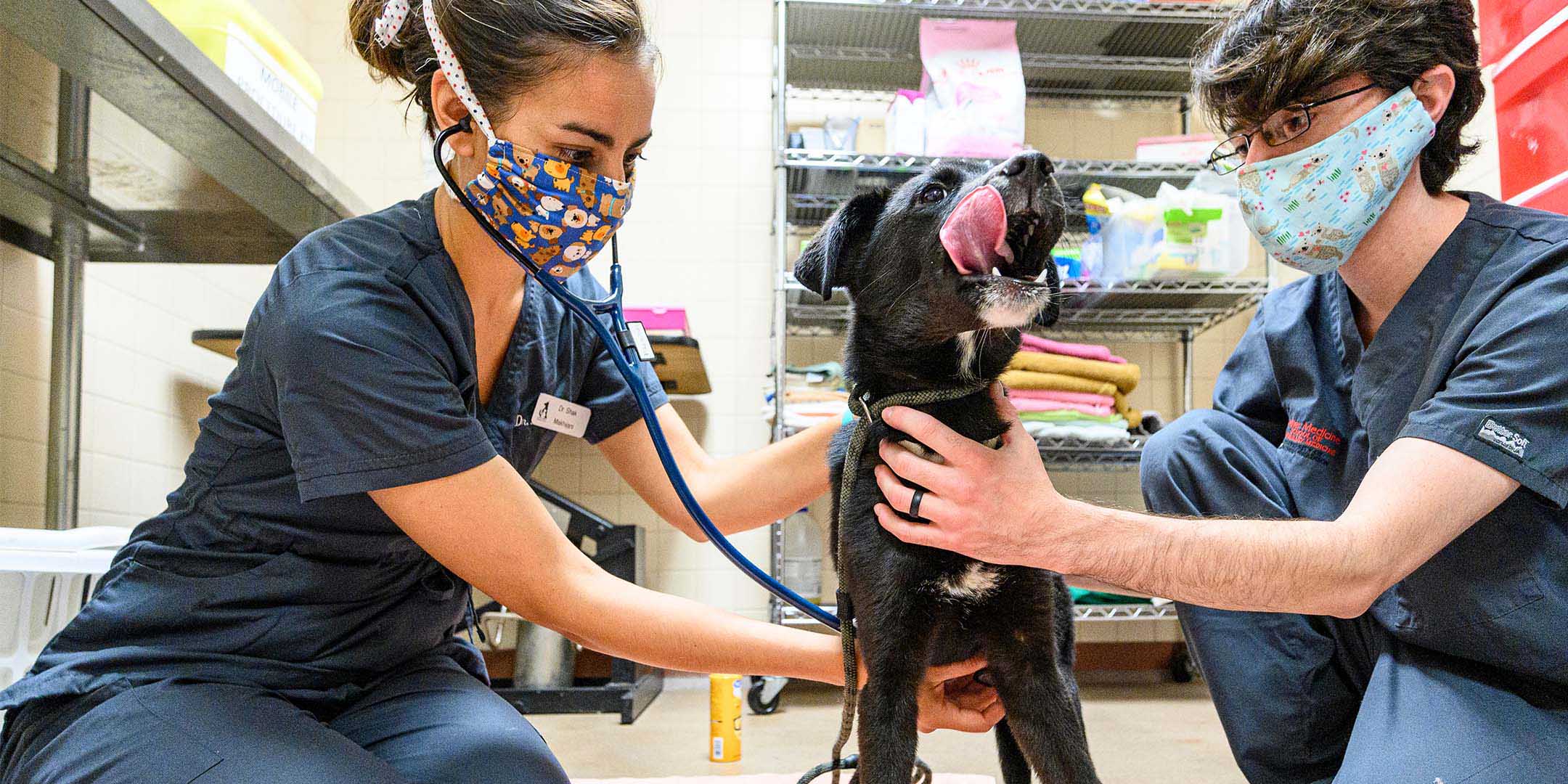
UW–Madison is leading the charge in the relatively new field of shelter medicine. Housed in the UW School of Veterinary Medicine, the innovative Shelter Medicine Program, funded through a collaborative group of donors, is enhancing shelters for the welfare of at-risk animals and the staff who care for them. The vital program was created by passionate alumna Sandra Newbury DVM’03 and is committed to saving the lives of animals and improving animal health and well-being in shelters. Ongoing contributions make this work possible, helping to offer a wide range of support services, including on-site and remote consultations, diagnostic testing, and outbreak assistance.
It is through education, outreach, and development of new knowledge that the Shelter Medicine Program is increasing the life-saving capacity of animal shelters across the country. The program is almost entirely funded by private supporters, including Jeff ’83 and Sara ’85 Wiesner; Margaret A. Cargill Philanthropies (MACP); and Maddie’s Fund, a family foundation. Because of their generosity, the program is successfully conducting its work through education and outreach-based research. Since January 2015, the program has assisted 59 shelters in 70 states and provinces and admitted 2,138,248 animals.
“I realized pretty early on that what was needed were these structural changes to animal shelters, instead of just trying to deal with each individual problem — which of course doesn’t mean you don’t deal with the individual problem. It’s just a way of dealing with it more efficiently,” shares Newbury.
In such an emotionally taxing field, the human side of the equation is critical to the animal side. Shelter staff members can sometimes struggle to find balance in their work and home lives. Donor generosity is helping the UW’s Shelter Medicine team provide veterinarians and their staff with the guidance, methods, and protocols they need to improve animal care, reduce lengths of stay, increase adoption rates, and reduce staff burnout, while setting up limits to aid in the success of both shelter animals and workers.
“Our work is about the animals, but these are great people, and they’re trying so hard to do these amazing things, so whatever we can do to support them is incredible to me,” says Marta Pierpoint, a program participant with the Humane Society of Western Montana.
